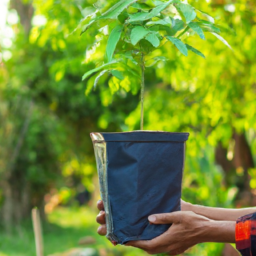Gardening Environment How It Helps
How Gardening Helps The Environment
Gardening, Nature, and the Environment
Gardening has been a part of our culture for centurieswe've been growing crops and cultivating plants since at least the Neolithic era. Today, however, gardening takes on a renewed importance for our environment. While the cultivation of plants and flowers is becoming ever more popular, so too is their use to benefit the environment. Read on to explore how gardening is helping the environment and what we can do to keep up the good work!
The History of Gardening and Its Impact on Nature
The use of gardening to cultivate plants dates back to pre-record history. Ancient civilizations like the Egyptians and Chinese were among the first to develop horticulture practices such as crop rotation and ploughing, essential methods still used today.
In more modern times, the development of new techniques and technologies has led to a greater understanding of how to nurture and care for plants. For example, hydroponic systems and greenhouses provide ways to grow crops in an environmentally friendly way.
Today, gardening is seen as a way to interact with nature, often taking place in urban settings where the traditional natural environment has been lost. Gardening serves both an artistic and a practical purpose, ultimately benefiting both humans and the environment.
Gardening and Its Benefits for the Environment
Gardening is beneficial for the environment in a number of ways. The most obvious way is by providing a habitat for pollinators and other wildlife. A healthy garden can be home to many species of insects, birds, and small mammalsall essential for a healthy and balanced environment.
Gardening also helps reduce erosion, provides shade for other plants, and contributes to the health of the soil. Composting isn't just great for your garden, it also helps to reduce the amount of garbage accumulating in landfills, while mulching can also be used to reduce water loss from the soil.
The Popularity of Gardening and Its Environmental Benefits
Gardening is becoming increasingly popular, especially among younger people. This is due in part to its environmental benefits, but the trend is also being driven by the increasing popularity of gardening as a hobby and pastime.
Today, raised beds, container gardens, and vertical gardens are becoming more commonplace, allowing people to cultivate plants in even the most urban of spaces. These types of gardens are great for improving air quality, providing habitats for wildlife, and increasing the amount of vegetation in our cities.
Gardening can even be done indoors. This is great for those limited by space, climate, or access to suitable soil. And, of course, it has all the same environmental benefits as traditional gardeningand possibly more.
Environmental Challenges Faced By Gardeners
Although gardening can have many environmental benefits, there are also a number of potential issues that gardeners need to be aware of. The main challenge is avoiding the use of chemicals and fertilizers that can end up in our waterways and ultimately our oceans.
It's important to ensure the use of organic methods to reduce the use of these potentially harmful substances. Gardeners should also take care to protect their plants from pests and disease, as this can often lead to the use of dangerous pesticides.
Organic gardening is a much better option for both people and the environment, as it can reduce dependency on chemicals and reduce our impact on the environment.
Insights
Gardening is becoming an increasingly popular activity, not just for those who take pleasure in the art of horticulture, but also for those looking to help the environment. What was once a luxury for those with large plots of land is becoming increasingly accessible to everyone, whether it be in the form of container gardens, vertical gardens, or indoor gardens.
Despite the popularity of gardening, there are still some challenges gardeners need to be aware of. The main issue is the use of potentially harmful chemicals and fertilizers, so it's important to ensure organic methods are used to reduce our impact on the environment.
Gardening has a long history and is an increasingly important activity for our environment. By actively engaging in sustainable gardening practices we can ensure that this activity continues to benefit us, our environment, and generations to come.
Reference
World Wildlife Fund. (n.d). Gardening for Nature. Retrieved from https://www.worldwildlife.org/stories/gardening-for-nature

Previous Page
Next Page